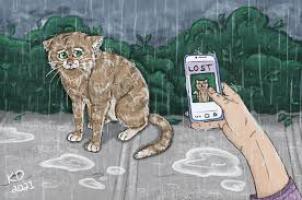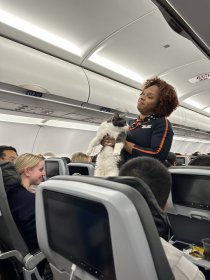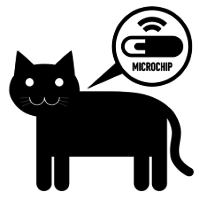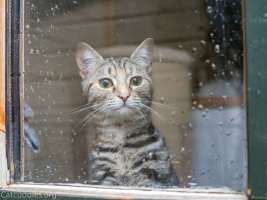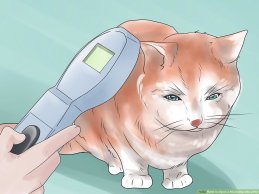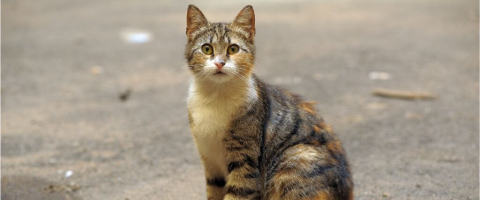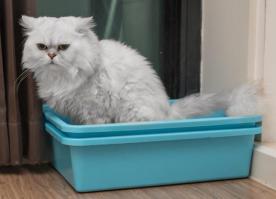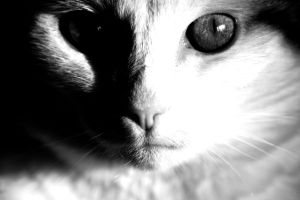Mews of the World
Better late than never!
Cat owners have until 10 June 2024 to microchip their cat, after this they may be in breach of the law. Microchipping cats should help reunite thousands of lost or stray pets every year!
Cat Wandering among the Clouds
A grey and white cat was found wandering the cabin aisles on a recent JetBlue flight, to the surprise of passengers onboard.
It quickly transpired that the cat, named Brian, had escaped his carrier during the flight and elected to explore the cabin.
While many North American airlines permit passengers to travel with a cat or small dog in the cabin for an additional fee, they must remain in containers approved by the International Air Transport Association (IATA) during the flight.
The cat was called Brian and his owner has now been found!
The image of the “chonky” cat quickly went viral, attracting over 133,000 likes on the social media platform – including from Brian’s owners, who shared their own update.
“He's doing great! My partner and I travel with him in a cat-backpack and the bottom flap isn't very secure. So Brian (pictured) must've nudged it open while we were asleep,” owner Alexis said.
“Thank you for all the love, he's safe and sound but definitely not sorry,” she added in another post.
Drug smuggler tries to disguise cat as baby
CAT GETS DISGUISED AS BABY IN OVER-THE-TOP OUTFIT TO SMUGGLE DRUGS
A drug dealer from Russia helmed a plan to hide heaps of narcotics in baby clothing. And for better camouflage, she disguised her cat as the baby – even dressing her in a diaper and an elaborate outfit.
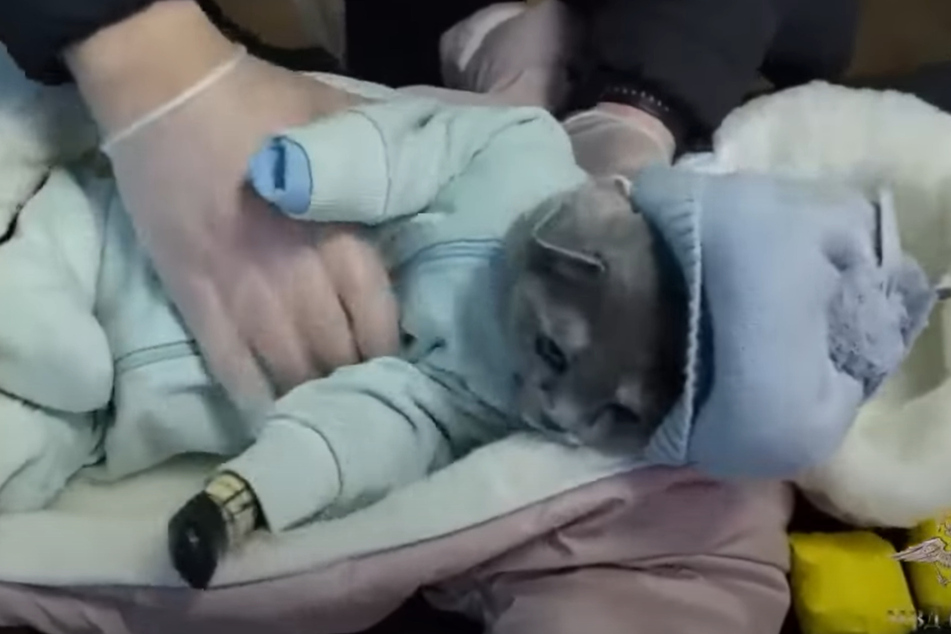
New rules makes microchipping for cats in England compulsory
All pet cats in England must be microchipped under a new law which could see their owners face a £500 fine if they do not get it done.
Millions of cats are set to be inserted with the small electronic device by June 2024 after the compulsory cat microchipping legislation was introduced in Parliament on Monday.
Under the new rules, cats must be implanted with a microchip before they reach the age of 20 weeks and their contact details stored and kept up to date in a pet microchipping database.
The aim is to make it easier for lost or stray pet cats to be returned home safely, which Environment Secretary Therese Coffey described as a time of “devastating” loss for many owners.
There are more than nine million pet cats in England, with as many as 2.3 million unchipped, according to the Department for Environment, Food and Rural Affairs (Defra).
Compulsory microchipping of dogs came into effect in April 2016.
Ms Coffey said: “Cats and kittens are treasured members of the family, and it can be devastating for owners when they are lost or stolen.
“Legislating for compulsory microchipping of cats will give comfort to families by increasing the likelihood that lost or stray pets can be reunited with their owners.”
Chief veterinary officer Christine Middlemiss said: “Microchipping is by far the most effective and quickest way of identifying lost pets.
“As we’ve seen with dog microchipping, those who are microchipped are more than twice as likely to be reunited with their owner.
“By getting their cat microchipped, owners can increase the likelihood that they will be reunited with their beloved pet in the event of it going missing.”
Microchipping involves inserting a chip, generally around the size of a grain of rice, under the skin of a pet.
This has a unique serial number that the keeper needs to register on a database.
When an animal is found, the microchip can be read with a scanner and the registered keeper identified on a database so the pet can quickly be reunited with them.
It will not be compulsory for free living cats that live with little or no human interaction or dependency, such as farm, feral or community cats.
Owners with cats that are already microchipped should ensure their details are up to date, Defra said.
Gacek The ‘King of Kaszubska Street’
Poland’s hottest tourist attraction is a fat black and white cat named Gacek has beaten a 12th-century castle in the tourist popularity stakes
A fat black and white cat has become a major tourist attraction in the Polish city of Szczecin.
Gacek, a free-roaming feline who lives in a box on Kaszubska Street in Poland’s seventh largest city, has captured the attention of cat enthusiasts around the world.
The rotund animal had a five-star rating on Google Maps, clocking up more than 2,500 reviews, according to local reports, before it was removed.
Huge surge in abandoned cats and dogs as RSPCA urges struggling owners to use pet food banks
The cost of living crisis is forcing increasing numbers of owners to hand over their pets to charities and rescue organisations as food bills and vets’ fees rise.
Older people and middle-income earners are the largest groups giving up their cats.
Do you have a cr*ppy ex?
You can now name a litter box after your ex and watch cats do their business over it!
The Animal Friends and Humane Society, in Hamilton, Ohio, America, is offering people the chance to name a cat litterbox after their ex partner - and it only costs $5 (£4.13)
An animal shelter is offering a special service for dissatisfied lovers this Valentine's Day - the chance to name a cat litter box after your ex. The Animal Friends and Humane Society, in Hamilton, Ohio, America, is asking for $5 (£4.13) donations to buy new litter boxes for their cats.
And in return, they'll write your ex's name on it so when their felines come to do their business, it lands all over them. A statement reads: "Do you have a cr*ppy ex? Don’t spend this Valentine's Day down in the dumps! Instead, cheer yourself up while making a difference for animals in need!
Drowning in animals!
The RSPCA has recorded a 24% increase in pets being dumped this year as shelters report they are “drowning in animals” amid the cost of living crisis.
“Cats Protection and the RSPCA alone report receiving more than 30,000 calls a year regarding stray cats, and more than 100,000 stray dogs are picked up off UK streets by councils every year.”
With the Cost of Living Crisis now in full swing, things will continue to get worse as some people are having to choose between feeding their animals or feeding themselves!
Isambard Kingdom Brunel makes biggest Cat Climbing Frame ever!
A cat which was stuck on a bridge for six days wandered home hours after a £5,000 rescue mission was abandoned.
Hatty, a five-year-old Maine Coon-Serengeti cross, had been perched on a ledge of the Royal Albert Bridge, which connects Plymouth, in Devon, and Saltash, in Cornwall for almost a week.
Fire crews and the RSPCA rushed out to rescue her and Network Rail were even making arrangements to close the rail line over the bridge, known locally as the Brunel Bridge.
But Hatty would not be budged and was last seen peering out from behind a crevice under the famous bridge.
Fire crews eventually called off the rescue - which costs the taxpayer about £500 an hour – at 5pm on Wednesday.
However, they vowed to return the next day.
Just a few hours after everyone left, Hatty clambered down and suddenly appeared at home – with evidence she had eaten a seagull to stave off the hunger.
Eight Lives Left!
A cat has been discovered under the bonnet of a car that had driven over 100 miles from Birmingham to London, according to an animal charity.
Passers-by told the driver they could hear meowing coming from his engine when he had parked up, Celia Hammond Animal Trust said.


